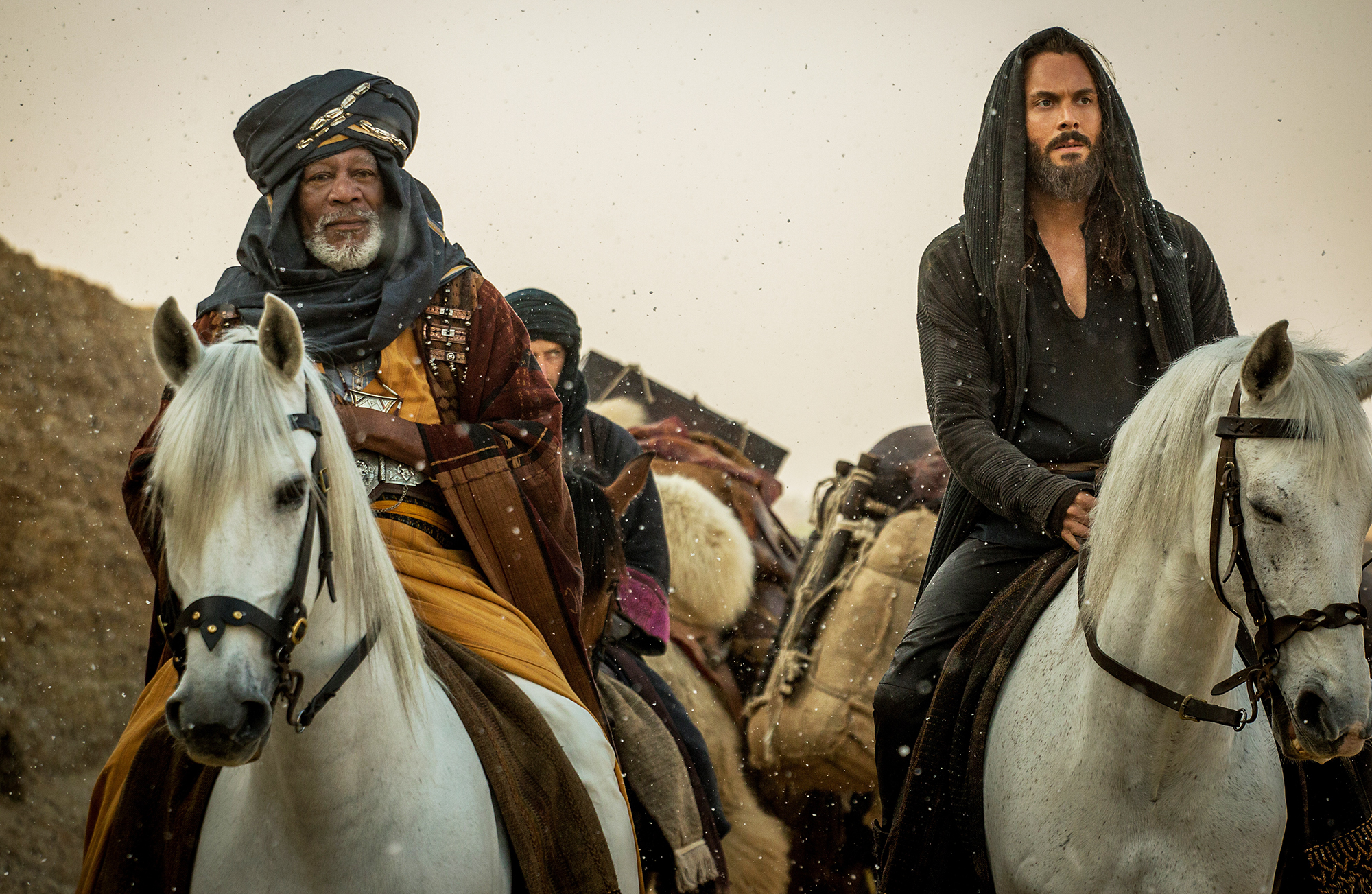
Leprosy just doesn’t have the cachet it used to. In the 1925 and 1959 film versions of Ben-Hur—as well as in the novel they’re based on, Lew Wallace’s stalwart 1880 Biblical epic Ben-Hur: A Tale of the Christ—the mother and sister of Jewish nobleman Judah Ben-Hur suffer a long and unjust imprisonment, during which they contract this fearsome, disfiguring communicable disease. When they’re finally released, they’re banished to the Valley of the Lepers, a terrible place with a terribly romantic name. That’s what literature, including the literature of movies, is for: Words and images can often draw out feelings we didn’t know we had. The Valley of the Lepers is surely no place you’d want to visit, but its name alone evokes doomy, decrepit secrets.
But Timur Bekmambetov’s new Ben-Hur adaptation downplays the terrible physical affliction visited upon mother Naomi and sister Tirzah (Ayelet Zurer and Sofia Black-D’Elia). They simply look mad, their eyes betraying a kind of stock, off-their-meds wildness. Compared with leprosy, garden-variety craziness just doesn’t swing. And that sums up the total squareness of this new Ben-Hur: In freshening up the story for a new audience, Bekmambetov (Abraham Lincoln: Vampire Hunter, Night Watch) has sucked most of the poetry from its soul, which makes it seem more dated rather than less. Even the dialogue has a digital-age ring to it. “What’s been said about Pontius Pilate?” one character asks. “To be honest, nothing good,” responds the other.
TBH, this Ben-Hur is so 2016 that it’s likely to seem dated in 2017. Still, it isn’t a complete failure. As Judah Ben-Hur, a man bent on revenge until he’s transformed by grace, Jack Huston—grandson of legendary director John—has a glow of modesty about him. If he doesn’t quite light up the role, at least he doesn’t peacock through it. And Toby Kebbell brings just enough gloomy complexity to the role of Judah’s Roman adoptive brother, the ambitious and resentful Messala. We can almost see the chip on his cape-draped shoulder.
Yet you can never be sure what this $100-million spectacle is trying to be, or exactly whom it’s for. The picture, released on August 18, hasn’t gotten much love from critics, and audiences haven’t flocked to it, either: It made just $11.4 million on its opening weekend. Perhaps old-fashioned epics, particularly Biblical ones, are a tougher sell in an era when mutants can work box-office miracles with their superpowers. Paramount and MGM, who co-produced the film, had hoped it might find its audience among Christian filmgoers. But even though Jesus (played by Rodrigo Santoro) is more of an overt presence here than in previous adaptations, he still comes off as an afterthought. As Judah wends his way through a bazaar, a carpenter who happens to be working nearby pipes up helpfully, “Love your enemies.” That’s Jesus’ entrance in this Ben-Hur, and it may be his finest moment. Mostly, he’s mostly just a calming hippie dude.
Unfortunately, he’s no match for the horses that draw Judah’s chariot, the true stars of this Ben-Hur. The nail-biter chariot race is the anchor of any Ben-Hur adaptation, and Bekmambetov pulls this one off with reasonable gusto. Huston and his fellow actors learned the basics of charioteering for their roles. If the sequence doesn’t have the jaw-dropping, how’d-they-do-that? elegance of the race in William Wyler’s 1959 version, it at least comes off as surprisingly naturalistic in these CGI-heavy times, and features many satisfying, grisly tramplings. And the four white horses who draw Judah’s chariot? They’re sublime in their beauty, like four matching pitchers of cream, visions of fluid, bobbing grace. They’re proof that Ben-Hur is a story for the ages, capable of surviving even a disappointing movie interpretation. When we get sick of looking at horses, we’ll know it’s really all over.
More Must-Reads from TIME
- Cybersecurity Experts Are Sounding the Alarm on DOGE
- Meet the 2025 Women of the Year
- The Harsh Truth About Disability Inclusion
- Why Do More Young Adults Have Cancer?
- Colman Domingo Leads With Radical Love
- How to Get Better at Doing Things Alone
- Michelle Zauner Stares Down the Darkness
Contact us at letters@time.com